
Infection and Drug Resistance
Scope & Guideline
Uncovering insights into drug efficacy and resistance mechanisms.
Introduction
Aims and Scopes
- Antimicrobial Resistance Mechanisms:
Research on the genetic and phenotypic mechanisms of antimicrobial resistance in various pathogens, including bacteria, fungi, and viruses, is a primary focus, aiming to elucidate the pathways through which resistance develops and spreads. - Infectious Disease Epidemiology:
The journal publishes studies that analyze the epidemiological trends of infectious diseases, including their transmission dynamics, risk factors, and the impact of social and environmental determinants on disease outbreaks. - Clinical Outcomes and Treatment Strategies:
Articles explore clinical outcomes associated with different treatment regimens for infections, particularly those caused by multidrug-resistant organisms, and evaluate the efficacy and safety of novel therapeutic agents. - Diagnostic Innovations:
There is a strong focus on the development and validation of new diagnostic methods, including molecular techniques such as metagenomic next-generation sequencing, aimed at improving the speed and accuracy of pathogen identification. - Public Health Interventions:
The journal highlights studies on public health interventions and strategies for infection prevention and control, particularly in healthcare settings, to mitigate the impact of drug-resistant infections. - Global Health Perspectives:
Research articles often incorporate global health perspectives, addressing the challenges of infectious diseases and antimicrobial resistance in various geographical and socio-economic contexts.
Trending and Emerging
- Metagenomic Approaches:
There is a rising trend in the application of metagenomic next-generation sequencing for diagnosing complex infections, allowing for a more comprehensive understanding of microbial communities and resistance profiles. - Machine Learning and AI in Infectious Diseases:
The integration of machine learning and artificial intelligence in predicting infection outcomes and resistance patterns is gaining traction, with studies exploring how these technologies can enhance clinical decision-making. - Impact of COVID-19 on Other Infections:
Research examining the impact of the COVID-19 pandemic on the epidemiology and management of other infectious diseases, including the resurgence of previously controlled infections, is increasingly relevant. - Vaccination Strategies and Acceptance:
With the ongoing vaccination efforts against COVID-19 and other infectious diseases, research on vaccine uptake, acceptance, and the associated factors is becoming a significant focus area. - One Health Approach:
The journal is increasingly publishing articles that adopt a One Health perspective, addressing the interconnectedness of human, animal, and environmental health in the context of infectious diseases and antimicrobial resistance. - Public Health Strategies for Infection Control:
There is a growing emphasis on evaluating and developing public health strategies and interventions for infection prevention and control, particularly in healthcare settings and during outbreaks.
Declining or Waning
- Traditional Antibiotic Approaches:
Research focusing solely on conventional antibiotic therapies without considering resistance mechanisms or the need for combination therapies has declined as the field shifts towards more integrated approaches to combat resistance. - Single-Agent Studies:
Studies evaluating the efficacy of single-agent antibiotic therapies have become less frequent as the understanding of polymicrobial infections and the need for combination therapies gains prominence. - Basic Laboratory Research:
There is a noticeable decline in purely basic laboratory studies that do not translate into clinical relevance or application, as the journal increasingly prioritizes translational research with direct implications for patient care. - Historical Epidemiological Data:
Research that focuses solely on historical epidemiological data without providing insights into current trends or implications for practice appears to be waning, reflecting a shift towards real-time data analysis and its application in public health.
Similar Journals

Mediterranean Journal of Infection Microbes and Antimicrobials
Innovating solutions for a healthier tomorrow.Mediterranean Journal of Infection Microbes and Antimicrobials is a distinguished open-access journal published by GALENOS PUBL HOUSE, dedicated to advancing the understanding of infectious diseases and microbiology. Since its inception in 2011, this journal has been a vital resource for researchers, professionals, and students interested in the intricate world of microbes and their impacts on human health. With its ISSN 2147-673X, the journal has progressively gained visibility, although it currently holds a Q4 ranking in multiple categories including Immunology and Microbiology, and Infectious Diseases for the year 2023. The journal operates from its headquarters in Istanbul, Turkey, and features a rich array of articles that contribute to the field’s body of knowledge. As a platform enhancing the accessibility of research, it invites submissions from global contributors to foster collaboration and innovation in tackling microbial challenges.
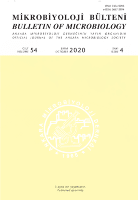
MIKROBIYOLOJI BULTENI
Championing Cutting-edge Research in Microbial StudiesMIKROBIYOLOJI BULTENI, with ISSN 0374-9096, is a prestigious academic journal published by the ANKARA MICROBIOLOGY SOC, located in Ankara, Turkey. Established in 1973, this journal has been a vital conduit for disseminating research in the fields of Immunology, Microbiology, and Infectious Diseases, garnering a reputation as a significant contributor to the scientific community. The journal is currently ranked in the Q3 category within Immunology and Microbiology (miscellaneous), and Infectious Diseases, indicating its impactful presence amidst contemporary research. With access options that may be restricted, MIKROBIYOLOJI BULTENI actively welcomes submissions that advance the understanding of critical microbiological principles and practices, thereby supporting both national and international research efforts. Researchers, professionals, and students are encouraged to explore the latest findings shared in this journal, as it continually shapes the landscape of microbiology and infectious disease studies through its comprehensive and rigorous peer-reviewed publications.

Infectious Microbes & Diseases
Unraveling the complexities of microbes and their impact.Infectious Microbes & Diseases, published by Lippincott Williams & Wilkins, is a premier journal dedicated to the exploration and understanding of infectious diseases, microbiology, and epidemiology. With its focused scope and robust peer-review process, the journal aims to disseminate high-quality research that contributes to advancements in the field, making it an essential resource for researchers, healthcare professionals, and students alike. Established in 2019, it has quickly gained recognition, achieving a Q3 rating in categories such as Epidemiology, Infectious Diseases, and Medical Microbiology in 2023, and ranking in the top half of its field within Scopus metrics. Although currently offered as a subscription-based journal, Infectious Microbes & Diseases significantly enriches its disciplines by inviting innovative research and critical review articles, thus playing a vital role in combating the global challenges posed by infectious diseases.
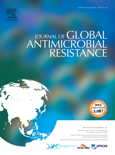
Journal of Global Antimicrobial Resistance
Innovating strategies for a healthier future.The Journal of Global Antimicrobial Resistance, published by Elsevier Scientific Ltd, is a premier open access journal dedicated to addressing the critical issue of antimicrobial resistance on a global scale. Established in 2013 and significantly gaining traction as an open access platform since 2020, this journal serves as an essential resource for researchers, healthcare professionals, and policy makers invested in immunology, microbiology, and associated fields. With an impressive impact factor reflected through its consistent ranking in the Q2 category across multiple disciplines, including Microbiology and Immunology – where it ranks #29 out of 140 in Medical Microbiology – the journal ensures high-quality peer-reviewed articles that push the boundaries of current knowledge and practice. By offering a global perspective on research trends and public health implications, the Journal of Global Antimicrobial Resistance plays a pivotal role in advancing the scientific discourse necessary to combat the rising tide of antimicrobial resistance worldwide.
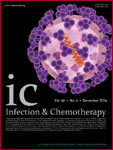
Infection and Chemotherapy
Innovative Insights into Infection Management and TherapyInfection and Chemotherapy, an esteemed journal published by the Korean Society of Antimicrobial Therapy, focuses on the dynamic fields of infectious diseases and pharmacology. With an ISSN of 2093-2340 and an E-ISSN of 2092-6448, this peer-reviewed, open-access journal has been providing a crucial platform for research dissemination since 2008. Based in South Korea, it boasts a significant impact in the academic community, as evidenced by its Q2 ranking in both Infectious Diseases and Pharmacology categories for 2023. It holds a Scopus rank of 64 out of 272 in Pharmacology and 98 out of 344 in Infectious Diseases, showcasing its prominence and the quality of research it publishes. With a focus on advancing scientific knowledge, Infection and Chemotherapy is committed to fostering essential dialogues among researchers, clinicians, and students, making it a vital resource for those engaged in the fight against infectious diseases and the development of effective therapeutic protocols.
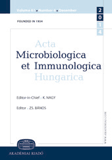
ACTA MICROBIOLOGICA ET IMMUNOLOGICA HUNGARICA
Connecting researchers to the pulse of immunology.ACTA MICROBIOLOGICA ET IMMUNOLOGICA HUNGARICA is a distinguished academic journal published by AKADEMIAI KIADO ZRT, focusing on significant advancements in the fields of microbiology, immunology, and infectious diseases. Established in 1994, this journal serves as a vital platform for researchers, professionals, and students keen on exploring the complexities of microbial interactions and immune responses. With a current Impact Factor reflecting its rank within the Q3 categories for Immunology, Microbiology, and Infectious Diseases, it retains a critical position in disseminating innovative research. Although not open access, the journal provides extensive insights disseminated through various academic databases, ensuring a broad reach within the scholarly community. Its convergence over three decades indicates a robust commitment to excellence in scientific inquiry and knowledge sharing. As it moves towards the future, ACTA MICROBIOLOGICA ET IMMUNOLOGICA HUNGARICA continues to uphold its legacy of fostering collaborative research initiatives that contribute to the understanding and treatment of microbial diseases globally.

Revista Espanola de Quimioterapia
Transforming Research into Real-World ImpactThe Revista Espanola de Quimioterapia, published by the SOCIEDAD ESPANOLA QUIMIOTERAPIA, is a pivotal open-access journal that has been advancing the field of clinical microbiology and pharmacology since its inception in 1989. With an E-ISSN of 1988-9518, this journal caters to a diverse audience of researchers, healthcare professionals, and students, providing them with critical insights into the latest developments in medicinal chemistry and therapeutic strategies. Located in Madrid, Spain, the journal reflects the rigorous academic standards of its associated institutions, contributing significantly to the translation of research into clinical practice. Achieving a Q3 ranking in the fields of Medicine, Microbiology, and Pharmacology in 2023 attests to its growing influence and relevance in the scientific community, making it a vital resource for those engaged in the quest for innovative solutions to pressing healthcare challenges. The journal prides itself on its commitment to maintaining an open-access model since 2018, ensuring that vital research is freely accessible to foster greater knowledge sharing and collaboration within the global scientific community.
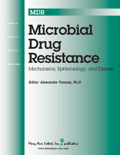
Microbial Drug Resistance
Exploring Innovative Solutions to Microbial ChallengesMicrobial Drug Resistance, published by MARY ANN LIEBERT, INC, is a pivotal journal that explores the critical intersection of microbiology and pharmacology with a keen focus on antibiotic resistance and related issues. Since its inception in 1995, this journal has established itself as a vital resource for researchers, healthcare professionals, and students, offering a platform for innovative studies that inform the global response to antimicrobial resistance. With a commendable position in the Category Quartiles, ranked Q2 in Medicine (miscellaneous) and Q2 in Pharmacology for 2023, it caters to a multidisciplinary audience by addressing the implications of microbial resistance within various medical contexts. Although currently non-Open Access, the journal allows subscribers and institutions to access high-quality, peer-reviewed research, directly impacting policy and practice in healthcare settings. Committed to advancing our understanding and combating the challenges posed by resistant microbes, Microbial Drug Resistance remains an essential publication in the fields of microbiology, immunology, and pharmacology.
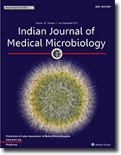
Indian Journal of Medical Microbiology
Discovering Tomorrow's Solutions in Medical Microbiology TodayIndian Journal of Medical Microbiology, published by Elsevier, is a pivotal peer-reviewed journal dedicated to the field of medical microbiology, providing a vital platform for research and scholarship since its inception in 1986. With an Open Access model established in 2001, it ensures the dissemination of scientific knowledge to a global audience, enhancing accessibility for researchers, professionals, and students alike. The journal's scope spans critical areas including immunology, infectious diseases, and microbiology, with an impressive trajectory marked by converged years of publication allowing for a comprehensive exploration of evolving scientific trends. As of 2023, the journal holds a Q3 ranking in Infectious Diseases and Microbiology (medical) and a Q4 ranking in Immunology and Microbiology categories, reflecting its significant yet growing impact in the field. Researchers seeking to contribute to or stay updated on the latest advancements in medical microbiology will find the Indian Journal of Medical Microbiology a valuable resource, as it consistently bridges the gap between emerging science and clinical application.
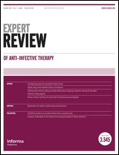
Expert Review of Anti-Infective Therapy
Navigating the Frontiers of Infectious Disease SolutionsExpert Review of Anti-Infective Therapy, published by Taylor & Francis Ltd, is a leading journal in the field of infectious diseases, microbiology, and virology, boasting an impressive impact factor and ranking in the Q1 category across multiple disciplines. With an ISSN of 1478-7210 and E-ISSN 1744-8336, this journal has become a vital resource for researchers, professionals, and students aiming to advance their understanding of anti-infective therapies. Since its inception in 2003, the journal has provided critical insights, evidence-based reviews, and forward-thinking perspectives that contribute significantly to the ongoing efforts in combating infectious diseases. As of 2023, it ranks #36 out of 344 in Medicine/Infectious Diseases and maintains high percentiles in various other categories, reflecting its influence and reach within the scientific community. Although not an Open Access journal, its rich content is delivered through various academic libraries, sustaining its commitment to disseminating knowledge in the face of global health challenges. For those committed to innovation in the field, the Expert Review of Anti-Infective Therapy offers a platform that blends thorough research with practical applications, making significant strides in the fight against infectious pathogens.